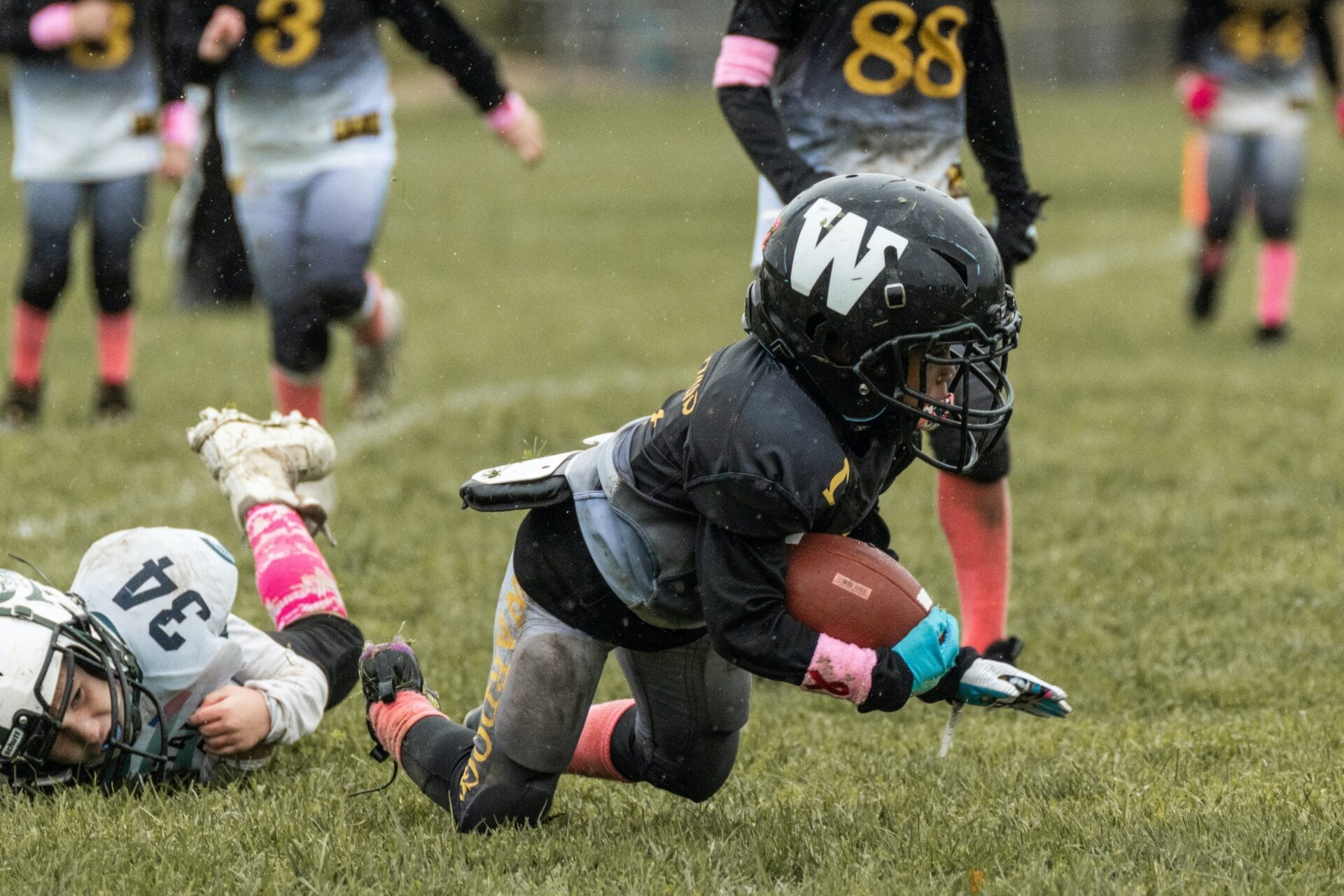Sports Psychology and Injury Resilience: A Mental Edge
Sports psychology is a specialized field that focuses on the mental and emotional aspects of athletes, aiming to enhance their performance and overall well-being. With its roots in psychology and neuroscience, sports psychology explores how the mind can play a crucial role in athletic success. One fascinating insight is that athletes with strong mental resilience are more likely to overcome injuries and return to their sport stronger than ever.
Injuries are an unfortunate reality in the world of sports, often resulting in physical pain, rehabilitation, and time away from the game. However, what sets apart athletes with exceptional injury resilience is their ability to bounce back mentally. Sports psychology has shown that adopting a positive mindset, setting realistic goals, and staying focused during the recovery process can greatly impact an athlete’s ability to recover and thrive. Moreover, research in this field has revealed various techniques and strategies that can bolster mental resilience and help prevent future injuries.
Moving forward, this article will delve into the key takeaways from the realm of sports psychology and injury resilience. We will explore the power of visualization techniques, the importance of setting performance goals, and the role of mindfulness in fostering mental resilience. By understanding these key concepts, athletes and sports enthusiasts alike can gain valuable insights and develop the mental edge needed to overcome obstacles and optimize their performance. So, let’s dive deeper into these fascinating topics and uncover the secrets behind the intersection of sports psychology and injury resilience.
Key Takeaways
1. Mental resilience plays a crucial role in preventing and recovering from sports-related injuries. Athletes who possess strong mental skills are more likely to display resilience and bounce back from setbacks.
2. Sports psychology techniques, such as goal-setting, visualization, and positive self-talk, can enhance an athlete’s mental resilience and aid in injury prevention and recovery.
3. Developing a strong support network is essential for maintaining mental well-being in the face of injury. Athletes who have a nurturing support system are more likely to handle the stress of injuries and maintain motivation throughout the recovery process.
4. The fear of reinjury can significantly impact an athlete’s psychological well-being. Addressing these fears through sports psychology interventions can help athletes regain confidence and alleviate anxiety surrounding the possibility of reinjury.
5. Education and awareness about the psychological aspects of injuries should be prioritized at all levels of sports. Coaches, trainers, and athletes themselves should be well-informed about the role mental resilience plays in injury prevention and recovery to optimize performance and overall well-being.
How Can Sports Psychology Help Improve Injury Resilience and Provide a Mental Edge?
The Role of Sports Psychology in Injury Resilience
Sports psychology plays a crucial role in helping athletes develop injury resilience. By focusing on the mental aspects of sports, it helps athletes overcome challenges, cope with stress, and develop a positive mindset. When it comes to injury resilience, sports psychology can assist athletes in several ways.
Building Mental Strength and Resilience
One of the key aspects of injury resilience is building mental strength and resilience. Sports psychology techniques such as visualization, goal-setting, and positive self-talk can help athletes develop mental toughness. These strategies enable athletes to stay focused, motivated, and resilient even in the face of setbacks and injuries.
Coping with Fear and Anxiety
Injuries can often lead to fear and anxiety, which can hinder an athlete’s performance and recovery. Sports psychology provides athletes with effective coping mechanisms to manage fear and anxiety associated with injuries. Techniques like relaxation exercises, deep breathing, and mindfulness can help athletes stay calm, focused, and in control of their emotions throughout their injury journey.
Staying Motivated during Rehabilitation
Rehabilitation after an injury can be a long and challenging process. Sports psychology helps athletes maintain motivation and commitment to their recovery journey. By setting realistic goals, using positive affirmations, and visualizing successful rehabilitation, athletes can stay motivated and focused on regaining their physical abilities.
Developing Mental Toughness for Injury Prevention
Another crucial aspect of sports psychology is developing mental toughness to prevent injuries. By focusing on enhancing decision-making skills, risk assessment, and concentration, athletes can reduce the likelihood of injury. Sports psychologists work with athletes to improve their awareness of physical limits, increase self-discipline, and make smart choices during training and competitions.
Improving Performance through Mental Skills
In addition to injury resilience, sports psychology also helps athletes enhance their performance through various mental skills. Techniques like imagery, goal-setting, and self-talk can optimize focus, confidence, and concentration. By harnessing the power of the mind, athletes can elevate their performance levels and gain a competitive edge.
5 Tips for Harnessing the Power of Sports Psychology for Injury Resilience
- Set clear and achievable goals for your injury recovery process to stay motivated and focused.
- Incorporate visualization techniques to imagine successful rehabilitation and visualize positive outcomes.
- Practice positive self-talk to develop a resilient mindset and overcome doubts and fears during the recovery journey.
- Engage in relaxation exercises, such as deep breathing and mindfulness, to manage anxiety and stress associated with injuries.
- Seek the guidance of a sports psychologist to develop personalized strategies and techniques tailored to your specific needs and goals.
FAQs
1. What is sports psychology and injury resilience?
Sports psychology refers to the psychological factors that affect an athlete’s performance, while injury resilience is the ability to bounce back from physical setbacks in sports. Together, these concepts aim to strengthen an athlete’s mental edge and help them overcome challenges both on and off the field.
2. How does sports psychology contribute to injury resilience?
Sports psychology plays a vital role in injury resilience by helping athletes develop mental strategies and coping mechanisms to better handle the physical and emotional stress associated with injuries. It involves techniques such as visualization, goal setting, and positive self-talk to enhance an athlete’s mental resilience and hasten their recovery process.
3. Can sports psychology prevent injuries?
While sports psychology cannot directly prevent injuries, it can significantly reduce the risk of injuries by enhancing an athlete’s decision-making skills, increasing their body awareness, and promoting safe training and conditioning. By improving an athlete’s mental state and focus, sports psychology indirectly contributes to injury prevention.
4. How can athletes benefit from sports psychology and injury resilience?
Athletes can benefit from sports psychology and injury resilience in various ways. These include improved performance, faster recovery from injuries, increased self-confidence, better stress management, enhanced focus and concentration, effective goal setting, and improved overall mental well-being.
5. Is sports psychology only for professional athletes?
No, sports psychology is beneficial for athletes of all levels, from amateurs to professionals. It can help anyone involved in sports, including athletes, coaches, and even parents, to develop essential mental skills and cope with the challenges and pressures of competitive sports.
6. Can sports psychology be helpful in team sports?
Absolutely! Sports psychology plays a crucial role in team sports as it contributes to building team cohesion, improving communication, enhancing cooperation, and fostering a positive team environment. It helps individuals within a team perform at their best and work together effectively towards shared goals.
7. How long does it take to see results from sports psychology techniques?
The time it takes to see results from sports psychology techniques may vary depending on the individual and the techniques used. While some athletes may experience immediate benefits, others may require consistent practice and application of these techniques over a longer period of time. Patience and commitment are essential for maximizing the effectiveness of sports psychology.
8. Are there any potential drawbacks to sports psychology?
While sports psychology offers numerous benefits, it is important to note that it is not a magic solution to all problems. Some individuals may not respond as effectively to certain techniques, and success may require personalized approaches. Additionally, sports psychology is not a substitute for proper physical training and medical advice in dealing with injuries.
9. Can sports psychology help with mental health issues?
Sports psychology can certainly play a role in improving an athlete’s mental health by providing tools and techniques to manage stress, anxiety, and other psychological challenges. However, it is important to seek professional help from mental health experts in cases of severe mental health issues and ensure a comprehensive approach to overall well-being.
10. How can athletes incorporate sports psychology into their training routines?
Athletes can incorporate sports psychology into their training routines by working with qualified sports psychologists or mental performance coaches who can provide individualized guidance. Techniques such as visualization, goal setting, mindfulness, and positive self-talk can be practiced regularly to enhance mental resilience and ultimately improve performance.
Final Thoughts: Sports Psychology and Injury Resilience
Sports psychology goes beyond the physical aspects of sports, emphasizing the significant role that mental well-being plays in an athlete’s performance and resilience. By integrating sports psychology techniques into training routines, athletes can develop a mental edge that not only enhances their overall performance but also aids in injury prevention and recovery.
Remember, injuries are inevitable in sports, but the way athletes respond to them mentally can make a significant difference. Developing injury resilience through sports psychology empowers athletes to bounce back stronger, maintain focus during rehabilitation, and ultimately achieve their goals, both on and off the field.




